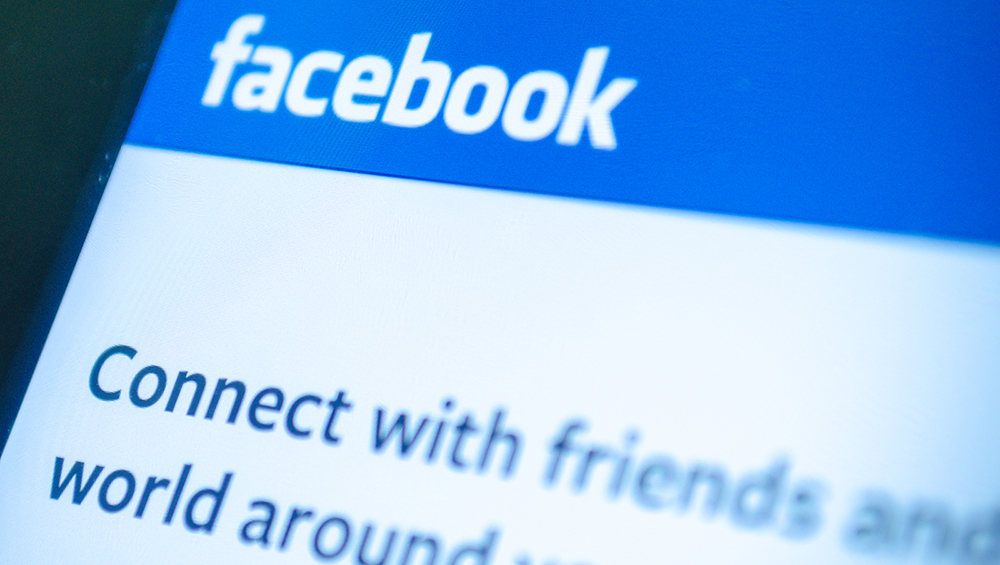Facebook exec calls Cambridge Analytica scandal a "non event"
Andrew Bosworth has popped up with another controversial internal memo, this time looking back at media criticism in 2019


Sign up today and you will receive a free copy of our Future Focus 2025 report - the leading guidance on AI, cybersecurity and other IT challenges as per 700+ senior executives
You are now subscribed
Your newsletter sign-up was successful
Most would say 2019 wasn't Facebook's easiest year, between allegations it enabled Russia to meddle in the 2016 US election, the ongoing fallout from the Cambridge Analytica debacle, and increasing attention from regulators and lawmakers. But Facebook thinks it wasn't as bad as the press made it out to be.
That's according to a leaked memo sent out to Facebook staff via its internal network by Andrew Bosworth, a vice-president at Facebook, who is reportedly seen as a proxy for founder Mark Zuckerberg. The memo, reprinted in full by The New York Times, reveals Bosworth's belief that media coverage of the company is often incorrect, that Facebook helped elect Trump — and may well again — and that the Cambridge Analytica scandal was a "total non-event".
On that last count, Bosworth lays out why he thinks the press got coverage of Cambridge Analytica wrong, saying that it wasn't a data breach, though he admits the controversial company had been "shopping an old Facebook dataset that they were supposed to have deleted".
He says that once that was revealed — by journalists — the communications team at Facebook pulled the company from its now closed data-sharing platform. "This was a huge mistake," he writes. "It was not only bad form (justifiably angering the journalists) but we were also fighting the wrong battle. We wanted to be clear this had not been a data breach (which, to be fair to us, it absolutely was not) but the real concern was the existence of the dataset no matter how it happened."
It's unclear why he thinks the data set being misused isn't a data breach, but Bosworth sent legal letters to journalists telling them not to use the term, saying the New York Times agreed while The Guardian did not.
Bosworth added: "In practical terms, Cambridge Analytica is a total non-event. They were snake oil salespeople. The tools they used didn’t work, and the scale they used them at wasn’t meaningful. Every claim they have made about themselves is garbage."
That said, while Bosworth believes the press was wrong — despite bringing the existence of the database to Facebook, and everyone else's, attention — he said the scrutiny was welcome. "The platform was such a poor move that the risks associated were bound to come to light. That we shut it down in 2014 and never paid the piper on how bad it was makes this scrutiny justified in my opinion, even if it is narrowly misguided."
Sign up today and you will receive a free copy of our Future Focus 2025 report - the leading guidance on AI, cybersecurity and other IT challenges as per 700+ senior executives
Bosworth also doesn't think Facebook was to blame for Russian interference in the US 2016 election, saying that only $100,000 in ads were spent in such a manner — a pittance versus what candidates were spending. Instead, Russia used the site in organic ways, such as hosting a Black Lives Matter event on the same day and in the same city as a Blue Lives Matter protest.
"The organic reach they managed sounds very big in absolute terms and unfortunately humans are bad at contextualizing big numbers," he wrote. "Whatever reach they managed represents an infinitesimal fraction of the overall content people saw in the same period of time and certainly over the course of an election across all media."
Despite claiming Cambridge Analytica as a non-issue and saying Russian interference was minimal, Bosworth is willing to accept credit for Donald Trump's success in the election. "He didn’t get elected because of Russia or misinformation or Cambridge Analytica," Bosworth said, stressing he personally supported the Clinton campaign. "He got elected because he ran the single best digital ad campaign I’ve ever seen from any advertiser. Period."
Facebook and Google data harvesting ‘violates human rights’ Facebook agrees to pay £500,000 ICO fine Cambridge Analytica and Facebook: What happened and has it impacted any votes? Facebook has "an enormous responsibility" for Russian interference in US election Facebook bans deepfakes ahead of US election
Because of that, Facebook shouldn't change its current policies, even if that leads to a repeat in the next election — something Bosworth personally would like to avoid, but he believes that way lies a slippery slope to corruption, making the point with a Lord of the Rings reference. "I find myself thinking of ... when Frodo offers the ring to Galadrial and she imagines using the power righteously, at first, but knows it will eventually corrupt her. As tempting as it is to use the tools available to us to change the outcome, I am confident we must never do that or we will become that which we fear."
What's next? Bosworth admits Facebook was late to the conversation on data security, misinformation and foreign interference, but needs to lead the conversation on polarisation and algorithmic transparency.
A Facebook spokesperson told the New York Times that the memo wasn't meant for the public, but was intended to encourage staff to "accept criticism with grace".
It's not Bosworth's first memo: in 2016, he published another internal missive saying "all growth is justified", even if people get hurt.
The latest memo comes alongside Facebook pledging to remove some deepfakes from the site ahead of the next US election, though it continues to refuse to fact check political advertising. Regulators are closely watching the social network for its impact on politics and more, but Facebook has been careful to stay in Trump's good books, with the US president bragging Zuckerberg had told him he was "number one" on the site.
Freelance journalist Nicole Kobie first started writing for ITPro in 2007, with bylines in New Scientist, Wired, PC Pro and many more.
Nicole the author of a book about the history of technology, The Long History of the Future.
-
 Cyber experts issue warning over new phishing kit that proxies real login pages
Cyber experts issue warning over new phishing kit that proxies real login pagesNews The Starkiller package comes monthly framework updates and documentation, meaning no technical ability is needed
-
 Microsoft hails advances in glass data storage
Microsoft hails advances in glass data storageNews Project Silica uses lasers to encode data into borosilicate glass, where it stays stable for thousands of years
-
 Meta to pay $725 million in Cambridge Analytica lawsuit settlement
Meta to pay $725 million in Cambridge Analytica lawsuit settlementNews The settlement closes the long-running lawsuit into how Facebook's owner, Meta, handled the Cambridge Analytica scandal
-
 Meta's earnings are 'cause for concern' and 2023 looks even bleaker
Meta's earnings are 'cause for concern' and 2023 looks even bleakerAnalysis Calls for investor faith in metaverse tech only emphasise the worries that its investment strategy won't pay off
-
 Microsoft and Meta announce integration deal between Teams and Workplace
Microsoft and Meta announce integration deal between Teams and WorkplaceNews Features from both business collaboration platforms will be available to users without having to switch apps
-
 Facebook is shutting down its controversial facial recognition system
Facebook is shutting down its controversial facial recognition systemNews The move will see more than a billion facial templates removed from Facebook's records amid a push for more private applications of the technology
-
 'Changing name to Meat': Industry reacts to Facebook's Meta rebrand
'Changing name to Meat': Industry reacts to Facebook's Meta rebrandNews The rebrand attempts to provide a clearer distinction between Facebook and its umbrella company
-
 Facebook's Oversight Board demands more transparency
Facebook's Oversight Board demands more transparencyNews Board bashed the social media giant for its preferential treatment of certain high-profile accounts
-
 Facebook claims AI managed to reduce hate speech by 50%
Facebook claims AI managed to reduce hate speech by 50%News The social media platform has hit back at claims the tech it uses to fight hate speech is inadequate
-
 Facebook to hire 10,000 workers across the EU
Facebook to hire 10,000 workers across the EUNews The high-skilled jobs drive is a “vote of confidence” in the European tech industry
